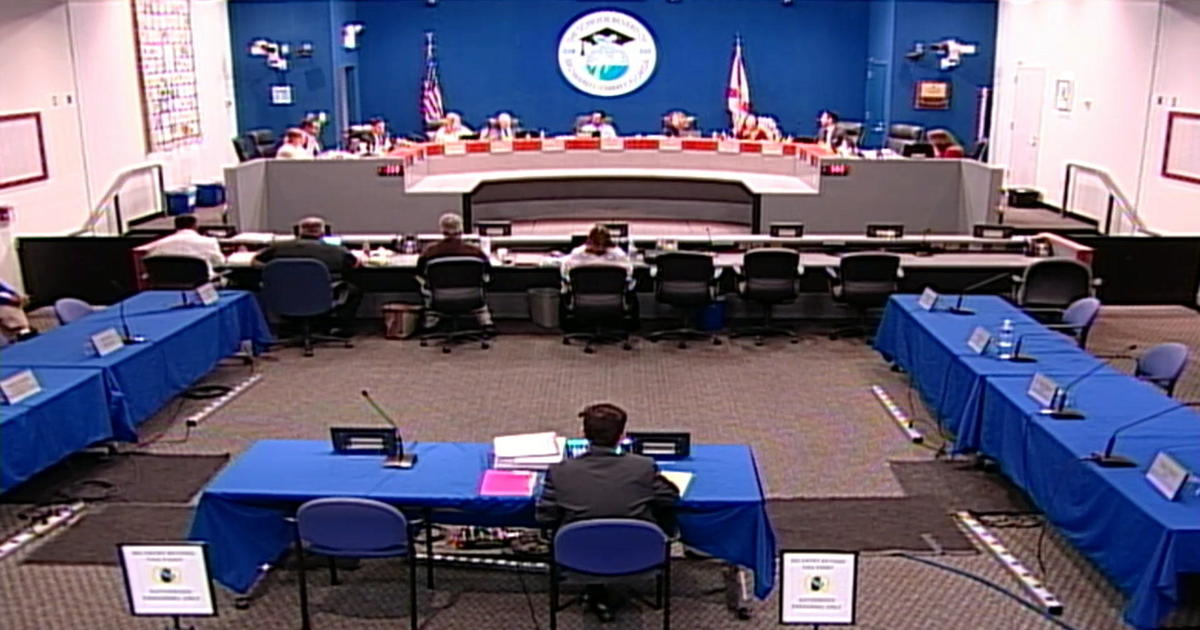State Not Backing Down In Fight Over Kosher Meals
TALLAHASSEE (CBSMiami/NSF) - Florida corrections officials and the federal government fired the latest salvos this week in a drawn-out battle over whether the state is required to serve kosher meals to inmates.
The Department of Corrections and the U.S. Department of Justice filed motions for summary judgment in the federal court case, with arguments centering on the federal "Religious Land Use and Institutionalized Persons Act" law.
The law, which went into effect in 2000, prohibits the state from imposing a "substantial burden" on an inmate's religious exercise, unless it can prove that the restriction furthers a "compelling government interest" and is "the least restrictive means" of furthering that interest.
The Justice Department sued the state over the kosher meals almost two years ago in the latest part of a decade-long court battle concerning the religious diets. In December, U.S. District Judge Patricia Seitz gave the agency until July 1 to offer kosher meals to "all prisoners with a sincere religious basis for keeping kosher."
The state had argued that providing kosher meals is prohibitively expensive and poses a security risk because inmates would have to be transferred to facilities that either had kosher kitchens or that served the meals. Seitz rejected those arguments in her December ruling.
In a brief filed Monday, lawyers for the Department of Corrections argued that the law allows Florida to scrap the kosher meals because of the financial burden placed on the "cash-strapped agency." The state has spent more than $200,000 on the lawsuit so far.
Congress intended the federal law "to be applied with great sensitivity to a state's limited resources and the need to control its costs," Florida Assistant Attorney General Lisa Kuhlman Tietig wrote.
But Justice Department lawyers argued that the state is required to provide the meals "to protect the religious freedom of prisoners" and can afford to do so.
"Defendants' ability to pay for religious diets is further highlighted by their expenditures on a variety of pro-social programs. … Many of these programs, including plumbing technology courses, are not legally required," the lawyers wrote.
The state and the Justice Department are also at odds on how much it will cost to feed prisoners who sign up for the religious meals, an option not only for Jewish prisoners, but for Muslim and Seventh-Day Adventists, whose religions also prescribe dietary restrictions.
About 8,400 of the state's approximately 100,000 inmates have signed up for the meals and will cost the state an extra $21 million, or the equivalent of 420 workers, according to the corrections department, which ran a $45 million budget deficit last year.
"Bills must be paid. Money must be found to pay them. Sometimes, paying them means foregoing other costs. In the case of a court, that might mean foregoing Westlaw time or salaries for marshals or law clerks. For a prison system, it might mean roofs for prisons and salaries for security staff," Tietig wrote.
But lawyers for the Justice Department argued that agency has inflated the costs, saying that the current participation rate will likely decline because the "Cadillac" hot boxed-meal plan originally offered was recently replaced by cold meals. Corrections officials introduced a revised diet consisting primarily of peanut butter, sardines and cabbage in March. This month, the agency asked Seitz to give them an extra year to offer the meals at all prisons.
After an initial surge in those seeking the religious diet abates, Florida's participation rate will likely mirror the 1 percent of federal prisoners who receive the kosher meals, the Justice Department lawyers wrote. That would cost about $730,000 per year, "a tiny fraction of Defendant's $2.3 billion budget," they wrote. At least 32 other states, including New York and California, offer kosher diets to prisoners.
But the state argued that, even if just 1.5 to 2 percent of the total prison population joined the program, the department would spend up to $1.7 million a year, not including extra costs for disposable utensils and plates.
"For a cash-strapped agency like the Department of Corrections, these amounts are not a 'relatively minor expense,' given other crucial needs that compete for funds," Tietig wrote.
Florida's "10 percent" rule, which suspends prisoners from the kosher diet if they fail to eat at least 90 percent of the available meals, is unlawful, the Justice Department also argued. The attendance rate for inmates eating the less-expensive, "main line" diet is only 85 percent, and the department "relies on this 15 percent no-show rate to meet its budgetary goals," the lawyers wrote.
"Requiring prisoners on the more-expensive kosher diet option to show up for a higher percentage of meals than prisoners on the less-expensive main line is not a method to prevent waste --- let alone the least-restrictive means of doing so," they wrote.
A trial in the case is slated for Aug. 25, but Seitz could rule on the motions instead.
This report is by Dara Kam with The News Service of Florida.
RELATED CONTENT:



